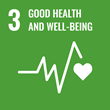Project information
Modelling the future: Understanding the impact of technology on adolescent’s well-being
(FUTURE)
- Project Identification
- GX19-27828X
- Project Period
- 1/2019 - 12/2023
- Investor / Pogramme / Project type
-
Czech Science Foundation
- EXPRO
- MU Faculty or unit
- Faculty of Social Studies
- Other MU Faculty/Unit
- Faculty of Informatics
- Project Website
- https://irtis.muni.cz/research/projects/future
This project aims to develop a complex evidence-based theory depicting impacts of technology usage on physical, psychological and social well-being of adolescents. We will integrate theories used by different fields, such as ecological systems theory (psychology), differential susceptibility to media effects theory (media studies), problem behavior theory (psychology) and behavioral change theory (health). Further, we plan to develop an innovative methodology integrating findings from short-term and long-term data collections. The first work package (WP) is based on the analyses of up-to-date data and aims to understand the associations of selected online risks and opportunities with well-being in the cross-culture perspective. We will use data from the project EU Kids Online, which collected representative data in 25 countries in the year 2010 and in 12 countries in the years 2017 to 2018. The second WP will assess the effects of the technology and various psycho-social factors on well-being of adolescents in longitudinal perspective. To capture the changes and to provide results in terms of causality, we will carry out the three-wave longitudinal research (with a one-year interval between each wave) on Czech adolescents aged 11-18 years. We aim for a sample of at least 1,000 adolescents and parents who attended the survey in all three waves. The third WP will comprise series of short-term studies focusing on examination of the cognitive processes related to impact of technology on well-being. We will present the stimuli on a computer/smartphone screen, and using eye-tracker, capture the pattern of eye movement. We will measure how different stimuli causes changes in well-being in relation to cognitive perceptions of the screens. The fourth WP will develop innovative research tools which will integrate short-term and long-term data collections. We will develop a software based on machine learning tools which will automatically access online behavior of adolescents. The data collection will combine intensive data collections based on real time behavior of adolescents (4x two weeks) with short surveys displayed on smart phones and two standard surveys.
Sustainable Development Goals
Masaryk University is committed to the UN Sustainable Development Goals, which aim to improve the conditions and quality of life on our planet by 2030.
Publications
Total number of publications: 64
2021
-
How risky are meetings with online strangers? The role of information sources in adolescent’s risk perception
Year: 2021, type: Appeared in Conference without Proceedings
-
Parental mediation of online interactions and its association with adolescents' contacts with online strangers
Year: 2021, type: Appeared in Conference without Proceedings
-
Towards Personal Data Anonymization for Social Messaging
Text, Speech, and Dialogue, year: 2021
-
Who Is Exposed to Harmful Online Content? The Role of Risk and Protective Factors Among Czech, Finnish, and Spanish Adolescents
Journal of Youth and Adolescence, year: 2021, volume: 50, edition: 12, DOI
2020
-
Bystander reactions to cyberbullying and cyberaggression : individual, contextual, and social factors
Current Opinion in Psychology, year: 2020, volume: 36, edition: December, DOI
-
Digital Connectivity During COVID-19 : Access to vital information for every child
Year: 2020
-
EU Kids Online 2020 : survey results from 19 countries
Year: 2020
-
EU Kids Online 2020 : technical report
Year: 2020
-
Factors influencing interactions between adolescents and unknown people from the internet : Findings from five European countries
Children and Youth Services Review, year: 2020, volume: 114, edition: July, DOI
-
Children’s experiences with cyberhate
Year: 2020
